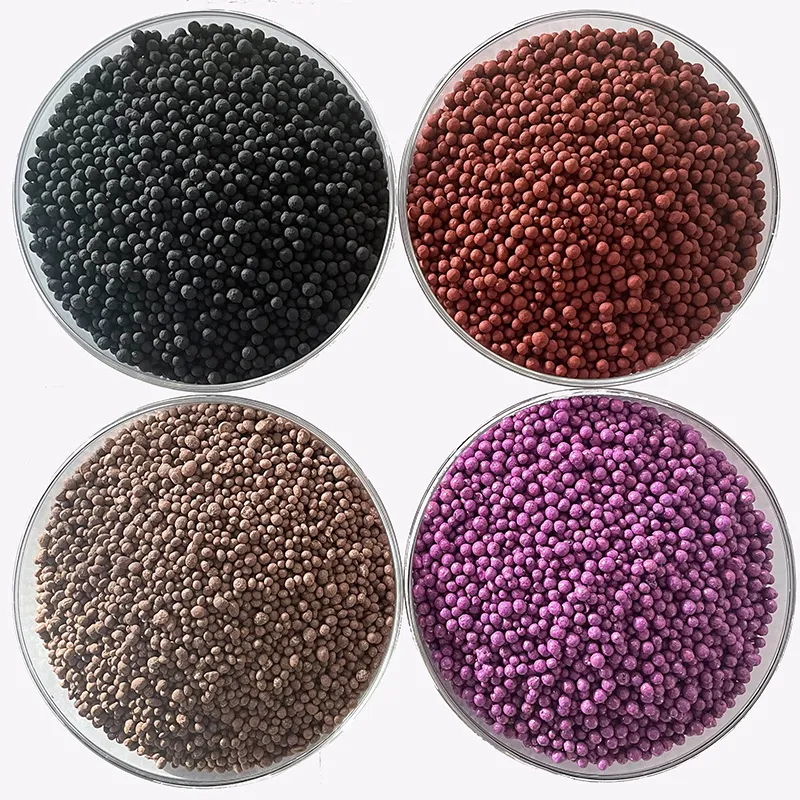
Jul . 27, 2024 23:08 Back to list
Sustainable Organic Fertilizer Production for Healthy Vegetable Cultivation in Modern Agriculture
The Importance of Organic Fertilizer in Vegetable Production
In recent years, the emphasis on sustainable agriculture has led to a resurgence in the use of organic fertilizers. As consumers become more health-conscious and environmentally aware, the demand for organic vegetables has skyrocketed. This shift in consumer behavior has stimulated the growth of organic fertilizer vegetable factories, which play a crucial role in producing high-quality, nutrient-rich fertilizers designed specifically for vegetable cultivation.
Organic fertilizers are derived from natural sources such as plant material, animal manure, and compost. Unlike synthetic fertilizers that can cause soil degradation and water pollution, organic fertilizers improve soil health and enhance the natural ecosystem. By enriching the soil with organic matter, these fertilizers promote the proliferation of beneficial microorganisms that are essential for plant growth. This not only results in healthier vegetables but also contributes to long-term soil fertility and sustainability.
One of the main advantages of organic fertilizers is that they release nutrients slowly, providing a steady supply of essential elements to vegetable plants over time. This slow-release characteristic minimizes the risk of nutrient leaching into waterways, a significant issue associated with chemical fertilizers. In contrast, organic fertilizers improve the soil structure, water retention, and aeration, creating an optimal environment for root development and nutrient uptake.
The role of vegetable factories that specialize in organic fertilizers cannot be overstated. These factories follow strict guidelines and practices to ensure that the fertilizers they produce are safe and effective for agricultural use. The production process often involves the composting of organic waste materials, such as food scraps, crop residues, and animal by-products. This not only helps to divert waste from landfills but also transforms it into a valuable resource for farmers.
organic fertilizer vegetable factory

In a typical organic fertilizer vegetable factory, raw materials are carefully selected and processed to create different types of fertilizers tailored for specific vegetable crops. For example, leafy greens may require a different nutrient profile compared to root vegetables. By offering customized solutions, these factories can meet the diverse needs of vegetable growers, enhancing crop yields and quality.
Furthermore, as awareness of environmental issues grows, government policies and programs are increasingly supporting organic farming practices. Many countries offer incentives for farmers who choose organic methods, which includes using organic fertilizers. This trend further elevates the role of organic fertilizer factories in the agricultural supply chain, as they become essential partners in helping farmers transition to more sustainable practices.
Another significant benefit of organic fertilizers is their positive impact on human health. Organic vegetables, grown with these natural fertilizers, are free from harmful chemical residues associated with synthetic fertilizers and pesticides. This not only ensures safer food for consumers but also helps to protect the environment by reducing the need for toxic agricultural inputs.
In conclusion, the establishment of organic fertilizer vegetable factories is a vital step towards sustainable agriculture. By producing high-quality organic fertilizers, these factories contribute to improved soil health, enhanced vegetable quality, and a more sustainable food system. As the demand for organic produce continues to rise, the innovative practices employed by these factories will play a crucial role in feeding the growing population while preserving the planet for future generations. Ultimately, the transition to organic fertilizers is not just a trend but a necessary evolution in the way we approach agricultural practices, catering to both the needs of our health and the health of our planet.
-
10-10-10 Organic Fertilizer - Balanced NPK Formula
NewsAug.02,2025
-
Premium Organic Manure Compost for Eco Gardens
NewsAug.01,2025
-
Organic 10-10-10 Fertilizer | Balanced Plant Nutrients
NewsJul.31,2025
-
Premium Amino Acid Fertilizer | Rapid Plant Growth Booster
NewsJul.31,2025
-
10 10 10 Fertilizer Organic—Balanced NPK for All Plants
NewsJul.30,2025
-
Premium 10 10 10 Fertilizer Organic for Balanced Plant Growth
NewsJul.29,2025
